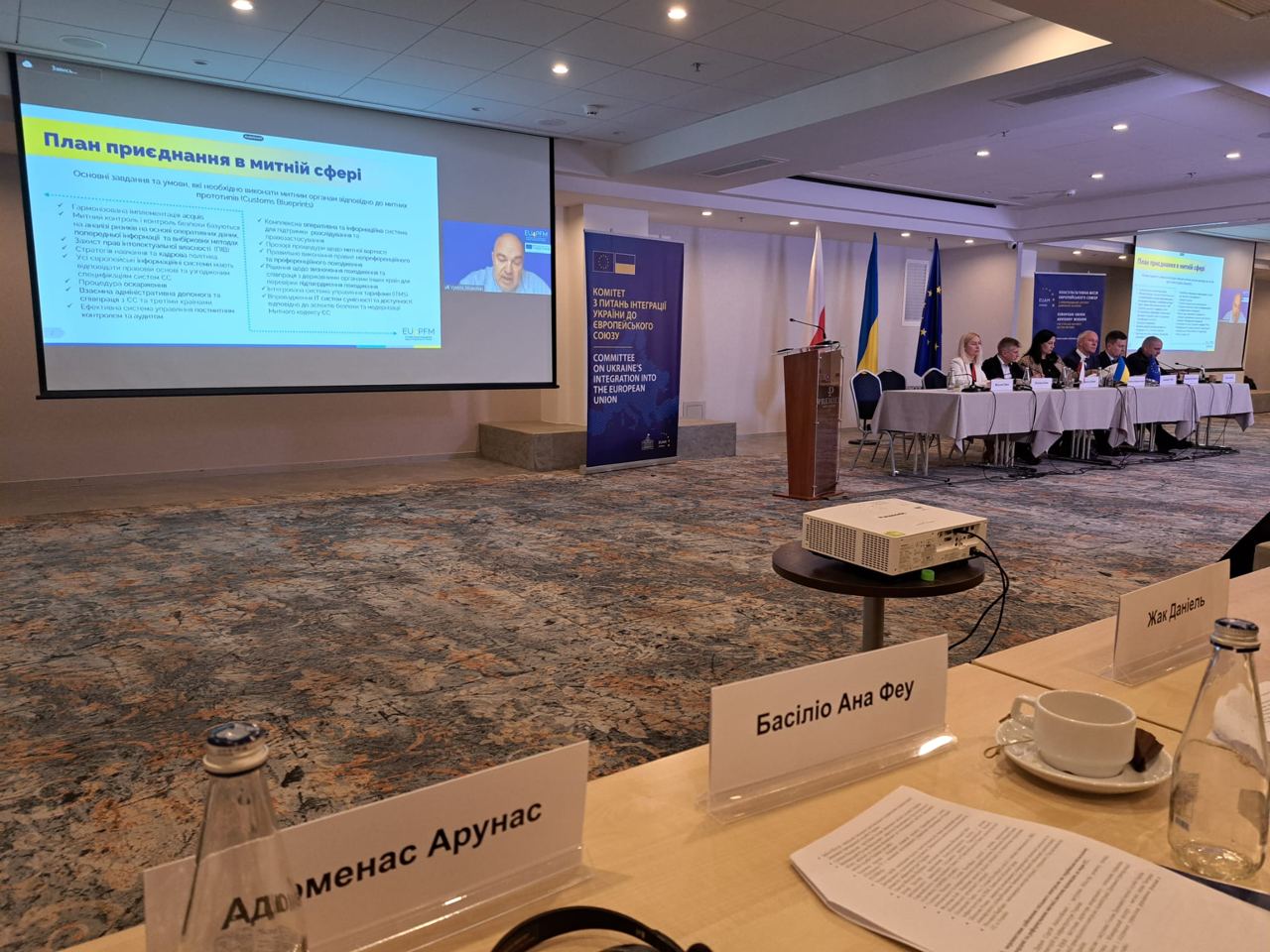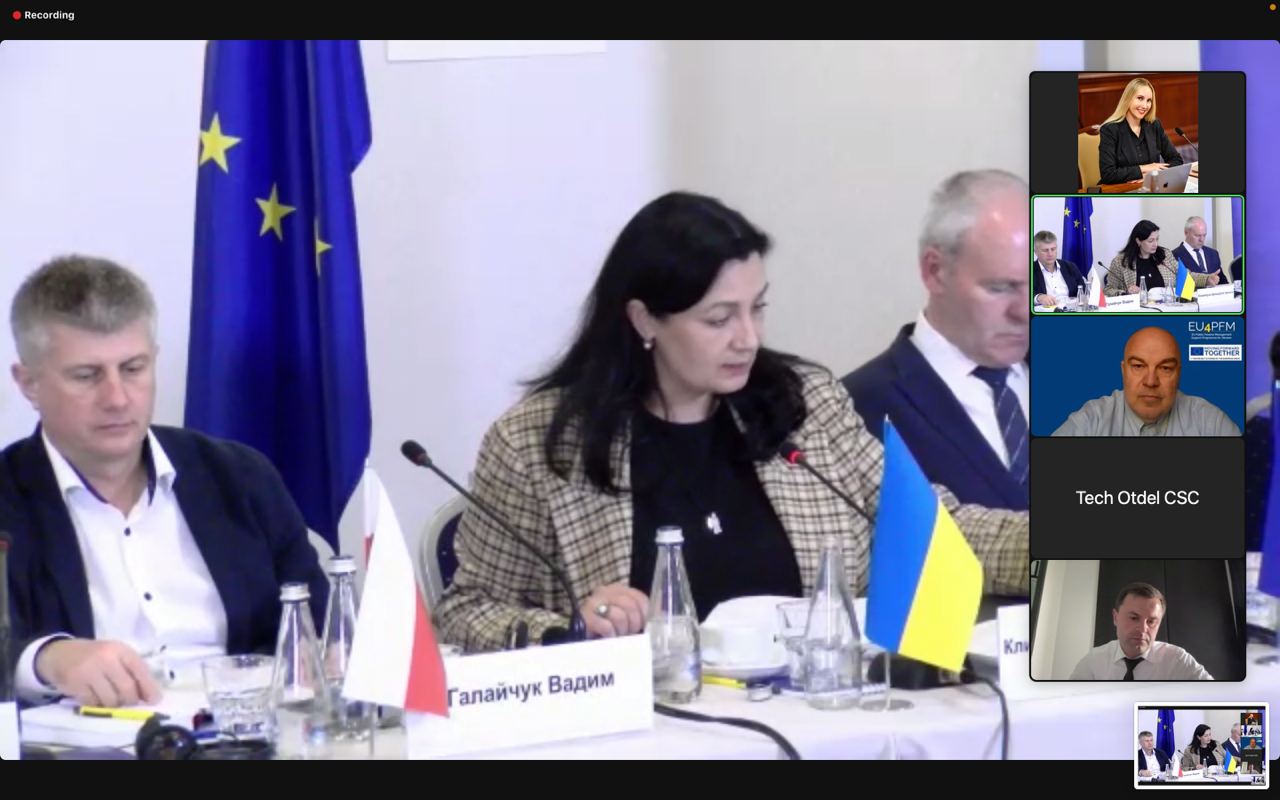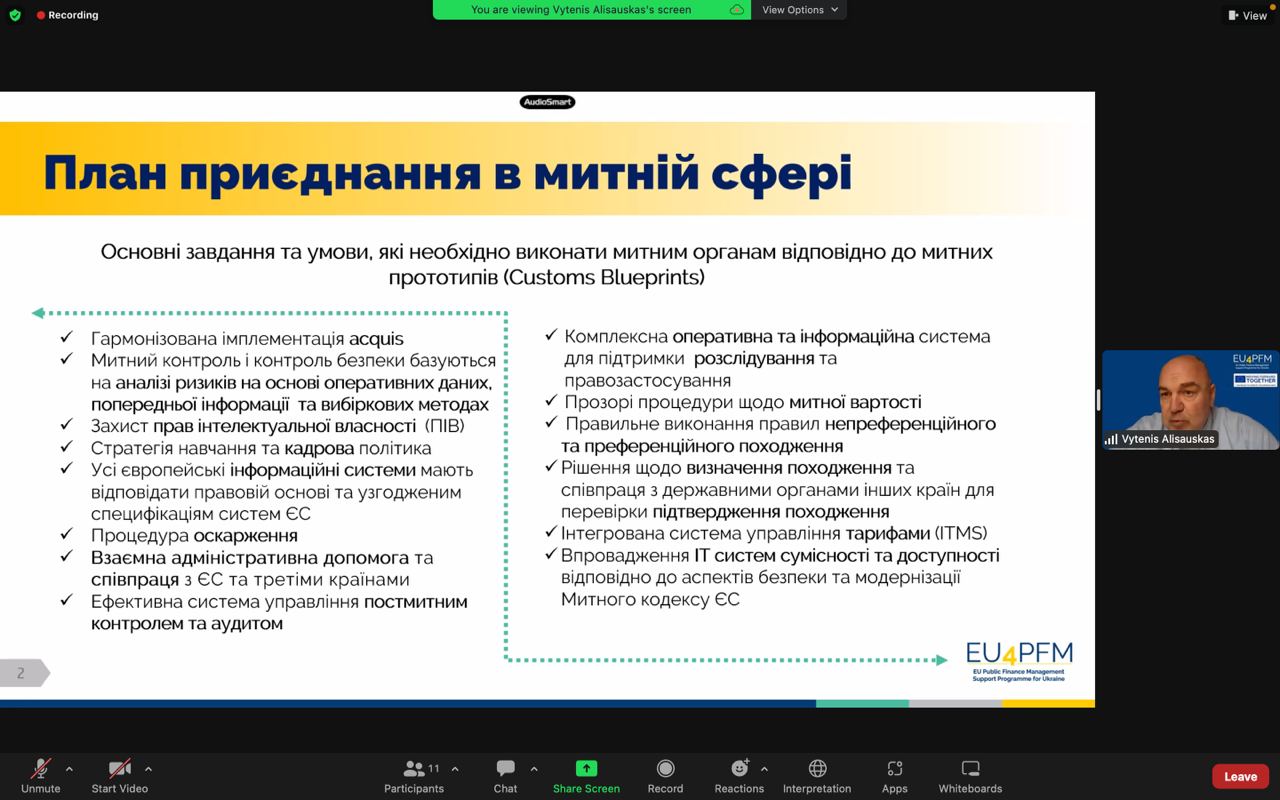“The development and adoption of the new Customs Code is a strategic task for Ukraine in the customs sphere in the context of accession to the EU”, – Vytenis Alisauskas
Four strategic priorities for Ukraine in the customs sphere in the context of accession to the EU were named by Vytenis Alisauskas, EU4PFM Key International Expert in customs area during the meeting of the Committee of the Verkhovna Rada of Ukraine on the Integration of Ukraine into the EU, held on 6 May in Lviv..
“The first strategic task is the development and adoption of a new Customs Code based on the Ukrainian translation of the EU Regulations establishing the EU Customs Code. The second is the implementation of more than 17 IT solutions over 5 years. The third is the strengthening of anti-corruption activities, including corporate governance and the anti-corruption base. The fourth is the criminalization of smuggling,” Vytenis Alisauskas said.
The expert highlighted that, currently, only one out of the 17 necessary IT solutions required for Ukraine’s accession to the EU, namely NCTS, has been successfully implemented in the country.
He also added that “in the short term, important tasks for Ukraine are the development of Phase 5 and Phase 6 of the NCTS and changes to the current Customs Code regarding customs debt, granting permits for special customs procedures instead of current customs regimes.”
The event took place as part of a joint visit to assess the state of the Ukrainian-Polish border by the Committee of the Verkhovna Rada of Ukraine on EU Integration and the Consultative Mission of the European Union in Ukraine (ECM). The heads of the Committee of the Verkhovna Rada of Ukraine and the Committee of the Senate of the Republic of Poland on Foreign and European Affairs, the Deputy Ministers of Foreign Affairs, Finance, Internal Affairs, Community Development, and Infrastructure, Deputy Heads of the State Border Service, the State Customs Service, the State Migration Service, the State Agency for Reconstruction and Development and other central authorities of Ukraine, heads of regional military administrations of Lviv and Volyn regions, representatives of European organizations, as well as heads and experts of the vast majority of European projects that contribute to the European integration of Ukrainian customs, the EU Delegation in Ukraine, the General Directorate of the European Commission for Mobility and Transport (DG MOVE), JASPERS, IBM, EU4IBM, EU4PFM took part in the discussion.




